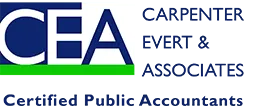5 Spend Management Challenges for SMBs and How Your CPA Can Help
Small and medium-sized businesses (SMBs) often face unique challenges when it comes to spend management. Efficient spend management is crucial for maintaining cash flow, optimizing expenses, and ensuring long-term viability. This article explores the primary spend management challenges for SMBs and highlights the ways a Certified Public Accountant (CPA) can help business owners overcome these hurdles. Advanced spend management can transform a business's bottom line by creating opportunities for cost savings and improved budgeting. By leveraging the expertise of a CPA, SMBs can significantly enhance their financial health.
1. Inadequate Budgeting and Forecasting
A significant challenge many SMBs face is inadequate budgeting and forecasting. Often, businesses underestimate the importance of precise budget planning, leading to financial mismanagement. An effective budget acts as a financial roadmap, setting clear financial goals and determining the necessary actions to achieve them. Without accurate forecasting, businesses may find themselves struggling with cash flow gaps, making it difficult to maintain their operations. Engaging a CPA can bridge these gaps by providing expert insights and strategies tailored to the business's financial landscape.
Developing a detailed budget plan is a quintessential part of effective spend management. This involves scrutinizing past financial data and anticipating future financial needs. SMBs should consider market conditions, seasonal trends, and upcoming expenses while crafting their budgets. A robust budget not only aids in allocating resources efficiently but also positions businesses to take advantage of unforeseen opportunities. CPAs are skilled in crafting comprehensive budget plans that are adaptable to changes, helping businesses to maintain flexibility and resilience.
Forecasting cash flow needs is critical for ensuring that businesses can meet their financial obligations. Effective cash flow forecasting involves predicting receipts and disbursements over various time periods. By doing so, businesses can identify potential cash shortages or surpluses in advance, allowing for proactive management decisions. This process can be complex, requiring a nuanced understanding of market dynamics and business cycles. CPAs play a pivotal role in this area by providing in-depth analysis and projections, enabling SMBs to prepare for future financial scenarios confidently.
2. Uncontrolled Operating Expenses
Uncontrolled operating expenses are another significant hurdle for SMBs. Often, businesses have areas of excess spending that go unnoticed until financial issues arise. Identifying these areas requires a thorough examination of expenditures and a commitment to cost optimization. Understanding spending patterns can help businesses allocate resources more efficiently and curtail unnecessary costs. CPAs have the expertise to analyze expense patterns thoroughly and recommend cost-saving strategies tailored to the business's needs.
Implementing cost-control measures can greatly enhance a business's financial performance. SMBs need to adopt methods such as negotiating better terms with suppliers, reducing waste, and optimizing resource utilization. These measures require strategic planning and consistent monitoring to ensure their effectiveness. With a CPA's guidance, businesses can establish robust cost-control practices that align with their financial objectives. CPAs offer valuable insights into best practices and innovative solutions, helping businesses achieve significant cost reductions.
Technological advancements offer SMBs tools to track their expenses efficiently and in real-time. Implementing systems that provide timely financial data can help businesses make informed decisions swiftly. Technology aids in automating repetitive tasks, thus saving time and reducing the risk of errors. Regular audits of these systems ensure their accuracy and reliability. CPAs are adept at integrating technology into financial processes, equipping SMBs with the right tools to manage their operating expenses more effectively.
3. Cash Flow Management Issues
Cash flow issues are a prevalent concern for many SMBs, significantly impacting their ability to sustain operations smoothly. Identifying cash flow patterns is a crucial first step toward managing this issue. By examining trends in revenue and expenditures, businesses can gain insights into their cash flow cycles and periods of high or low liquidity. Proactive cash flow management allows businesses to optimize cash reserves and reduce the likelihood of financial shortfalls. CPAs are instrumental in helping businesses analyze these patterns, providing expert advice on effective cash flow strategies.
Late payments and receivables can disrupt cash flow, creating financial bottlenecks for SMBs. Addressing these issues requires establishing efficient invoicing processes and clear credit policies. Ensuring that payment terms are communicated and enforced minimizes the risk of late payments. Effective management of accounts receivable is vital for maintaining a steady cash flow. CPAs can assist businesses by designing systems that enhance collection processes and reduce the incidence of overdue payments.
Efficient management of payables is equally important in cash flow optimization. Businesses must balance the need to maintain good vendor relationships with the objective of preserving cash reserves. Managing payables involves prioritizing critical payments while negotiating favorable terms for others. Establishing a cash reserve is also essential, serving as a financial buffer during challenging periods. CPAs provide invaluable guidance in these areas, ensuring that businesses maintain liquidity and financial stability amidst changing circumstances.
4. Invoice and Billing Challenges
Effective management of invoices and billing processes is critical for SMB financial health. Streamlining the invoicing process can prevent delays and errors, ultimately enhancing cash flow. Adopting systematic billing practices ensures that invoices are generated and delivered promptly. Delays often arise from manual processes, which can be mitigated by automating routine tasks. CPAs provide strategies to streamline billing procedures, thus minimizing latency and errors in the invoicing cycle.
Ensuring timely billing is essential for maintaining cash flow, yet many SMBs struggle with this aspect. A proactive approach to billing, including regular follow-ups and timely reminders, can significantly reduce the incidence of late payments. Leveraging software solutions can expedite the billing cycle, providing businesses with more control over their revenues. Automating billing and collection systems not only enhances efficiency but also improves accuracy, leading to better financial outcomes. CPAs play a key role in integrating these systems into existing business frameworks, facilitating smooth transitions and improved billing processes.
Invoice discrepancies can lead to conflicts and delays in payment receipt, affecting business relationships and cash flow. Mitigating these discrepancies involves double-checking data entries and ensuring that invoices are clear and detailed. A CPA can assist in developing processes that minimize errors and clarify invoice terms, reducing the potential for disputes. According to CPA.com, while 72% of SMBs want spend management services, only 34% of accounting firms currently offer them, highlighting the critical need for CPA involvement. CPAs help businesses establish consistency in their invoicing practices, enhancing their client relationships and financial stability.
5. Vendor and Supplier Management
Strong vendor relationships are vital for optimizing supply chain efficiencies and negotiating favorable terms. Building trust with vendors can lead to cost savings through bulk purchasing and discounts. It also enhances the flexibility and reliability of the supply chain, allowing businesses to respond more effectively to market demands. A CPA can provide strategic insights into how to manage supplier dynamics, ensuring that vendor agreements are mutually beneficial. CPAs help businesses craft strategies that prioritize long-term partnerships and financial advantages.
Evaluating supplier contracts is crucial for ensuring that terms are competitive and align with the business's financial objectives. Businesses must scrutinize contract terms to identify opportunities for improvement or renegotiation. A thorough evaluation can uncover areas where costs can be reduced or payment terms improved, impacting overall spend management positively. CPAs are experienced in contract analysis and can offer recommendations that strengthen vendor relationships while managing costs effectively. Their expertise ensures that contracts contribute to sustainable financial management.
Through strategic insights and expert advice, CPAs empower SMBs to achieve financial health and sustainable growth. Engaging a
CPA
isn't just about managing spending; it's about building a foundation for long-term success and resilience in ever-changing business environments. Connect with Carpenter, Evert & Associates today to learn more about how our experienced team can help.













